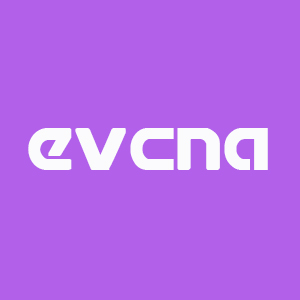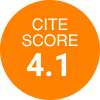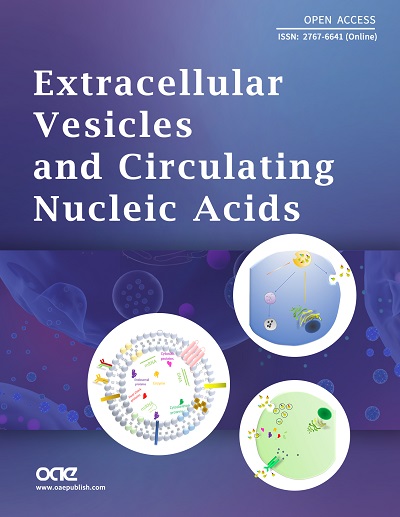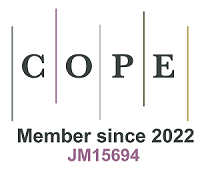Partner's Meeting
OAE operates a rigorous peer-review process. In most cases, this is a single-blind assessment with at least three independent reviewers, followed by a final acceptance/rejection decision by the Editor-in-Chief, or Associate Editors (if any conflicts of interest). The Editor-in-Chief is responsible for the academic quality of the publication process, including final decisions, and approval of Guest Editors, special issue topics, and new Editorial Board members.
A summary of the editorial process is given in the flowchart below.
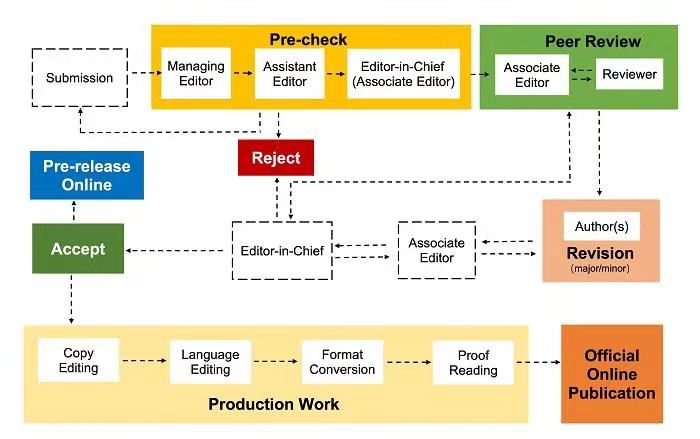
The following provides notes on each step.
Submission
Submission to Extracellular Vesicles and Circulating Nucleic Acids is implemented online only by using our editorial system, MESAs. You will be guided through the process step by step, and you will be able to track the progress of your manuscript through the system. MESAs automatically converts the article's source file into a single PDF, which is used in the peer review process. Please note that we will still need the source files for further processing after acceptance.
Reviewers
SuggestionsTo enable speedy handling of your manuscript, we encourage you to provide the names and institutional e-mail addresses of several potential referees. Note that the Editor retains the sole right to decide whether or not to use the reviewers you suggest.
ExclusionsYou are welcome to exclude a maximum of three researchers as potential Editors or reviewers of your manuscript. To ensure a fair and rigorous peer review process, we ask that you keep your exclusions to a maximum of three people. If you wish to exclude additional referees, please explain or justify your concerns—this information will be helpful for Editors when deciding whether to honor your request.
Peer Review
Initial manuscript checkOur in-house editorial team will ensure that you have uploaded all necessary files in a usable format and that you have provided all the information we require. If your manuscript does not meet one or more of these requirements, we will return it for further revisions.
Publishing ethicsAll manuscripts submitted to Extracellular Vesicles and Circulating Nucleic Acids are screened using CrossCheck powered by iThenticate to identify any plagiarized content. Your study must also meet all ethical requirements as outlined in our Editorial Policies. If the manuscript does not pass any of these checks, we may return it to you for further revisions or decline to consider your study for publication.
Editorial assessment
Once it has passed the initial checks, our editorial team will assign your manuscript to the Editor-in-Chief, and the Editor-in-Chief will assign it to an Associate Editor with relevant expertise, who will be responsible for managing the peer-review process. Editor-in-Chief, as well as the Associate Editors, may reject manuscripts that they deem highly unlikely to pass peer review without further consultation.
Process
Extracellular Vesicles and Circulating Nucleic Acids operates a single-blind review process. The technical quality of the research described in the manuscript is assessed by the Associate Editor and a minimum of one additional independent expert reviewer or three additional independent expert reviewers. We have to have three reviews back and if one is positive and one is negative, then we need a third review. The member handling the article will then send it to the Editor-in-Chief for final approval of the decision to accept, revise, or reject after revision.
Confidentiality
All information contained in your manuscript and acquired during the review process will be held in the strictest confidence.
Decisions
Your research will be judged on technical soundness only, not on its perceived impact as judged by Editors or referees. There are three possible decisions: Accept (your study satisfies all publication criteria), Invitation to Revise (more work is required to satisfy all criteria), and Reject (your study fails to satisfy key criteria and it is highly unlikely that further work can address its shortcomings). All of the following publication criteria must be fulfilled to enable your manuscript to be accepted for publication:
- Originality
The study reports original research and conclusions. - Data availability
All data to support the conclusions either have been provided or are otherwise publicly available. - Statistics
All data have been analyzed through appropriate statistical tests and these are clearly defined. - Methods
The methods are described in sufficient detail to be replicated. - Citations
Previous work has been appropriately acknowledged. - Interpretation
The conclusions are a reasonable extension of the results. - Ethics
The study design, data presentation, and writing style comply with our Editorial Policies.
Revisions
Your revised manuscript will be assessed by the original reviewers. We request that a document of point-to-point response to all comments of reviewers and the Editor should be supplied along with the revised manuscript to allow quick assessment of your revised manuscript. This document should outline in detail how each of the comments has been addressed in the revised manuscript or should provide a rebuttal to the criticism. In cases where only minor revisions are recommended, the author is usually requested to revise the manuscript before referring to the external Editor. Manuscripts may or may not be sent to reviewers after revision, dependent on whether the reviewers requested to check the revised version and the wishes of the Academic Editor. Apart from in exceptional circumstances, Extracellular Vesicles and Circulating Nucleic Acids only supports a maximum of two rounds of major revision per manuscript.
Appeals
If you believe that the editorial decision about your manuscript was based on factual errors, you can contact us at editorial@evcna.com. Please state the manuscript ID and describe in detail why you believe the decision was erroneous. Your appeal will be seen again by the handling Editor, who will revisit the previous decision in light of your comments. Please note that we do not allow multiple appeals: a second decision will be final.
After Acceptance
Once a manuscript is acceptable, a letter of the official acceptance will be sent to authors.
Pre-release online and productionEach accepted manuscript is pre-released online and produced synchronously.
The work of pre-release online is completed immediately after acceptance decision received.
The production work includes language editing, copy editing, format conversion, proofreading, etc. Before publication, authors are provided with a PDF version of their manuscripts for proofreading, where major changes are not allowed.
Language editingOAE provides an English editing service for all accepted manuscripts, which comes with an extra charge. Please visit https://www.oaepublish.com/index/author_services or contact English-Editing@oaepublish.com for more details.
Proofreading correctionsThe corresponding author will receive an e-mail with a link to our editorial system, which lets you annotate, correct errors introduced during proofreading, and submit the final version online. You can edit the text, comment on figures/tables, and answer questions that arose during the processing of your article. All instructions for proofreading corrections are provided in the e-mail. We will do everything possible to get your article published quickly and accurately, so please submit all of your corrections within 24 hours. Please check carefully before replying, as we cannot guarantee the inclusion of any subsequent corrections. Please note that we can only publish your article once we have received your revisions or notification that you are happy for our proceeding with publication as is.
Availability of the accepted article
After the production work mentioned above completed, the version of pre-released online will be removed from the website only with official publication kept online. Extracellular Vesicles and Circulating Nucleic Acids makes articles available online as soon as possible after acceptance; we aim to publish within 72 hours after receiving your proofreading corrections.
Open access
Your article will be free for everyone to read—immediately and permanently. You retain the copyright and personal scholarly usage rights, and we will have the publishing and distribution rights. Once it is published, people will be able to download, copy, and share your article. We provide authors with a choice of publishing under the Creative Commons licenses CC- BY. The license will help maximize the impact of your article, getting the most reach and use out of it. Here are the details:
Creative Commons Attribution (CC-BY)This license lets people distribute and copy your article as long as they credit you. They can create extracts, abstracts, and different versions, such as translations. Under this license, people can also include your article in a collective work, and mine the text and data—including for commercial purposes. All this is possible, as long as they do not claim that you endorse their adaptation, or do not damage your reputation.
Article processing chargeExtracellular Vesicles and Circulating Nucleic Acids is an open access journal—everyone can read the research we publish for free. When a paper is accepted for publication, the article processing charge is $1500. There are no additional charges based on color, length, figures, or other elements. For more details, please refer to OAE Publication Fees.
Copyright
Extracellular Vesicles and Circulating Nucleic Acids adopts "Attribution 4.0 International License" for publication. Authors are required to sign a License to Publish (which can be downloaded from the journal's Author Instructions), granting OAE, which identifies itself as the original publisher, exclusive rights to publish their articles, and granting any third party the right to use the articles freely as long as the integrity is maintained and the original authors, citation details, and publisher are identified.
EmbargoSubmitted and accepted articles must remain privileged documents and must not be released to the press or the public, in any format including print, television, Internet, etc., until they appear online either as ahead of print or as a final publication. OAE allows authors to post their manuscripts on not-for-profit preprint servers or to discuss them at scientific conferences, but these should not be discussed with the media.
Erratum and correctionWe will publish a correction of your article if a significant error is discovered after publication. An Erratum will be published if we introduced the error or a Correction if the author introduced the error.
RetractionsArticles may be withdrawn, retracted, removed, or replaced after publication if they contain substantial errors that cannot be corrected by publishing an Erratum or a Correction, or if ethical violations come to light after publication. You can find more information in the journals' Editorial Policies.
Authorship DisputesTo manage authorship disputes, we follow COPE guidelines, particularly "How to spot authorship problems [PDF]". Typically, if all authors agree, the authorship can be updated via a Correction. If not, we require an authoritative statement from the authors' institution(s) about who qualifies for authorship.
Last updated on 10 May, 2023
